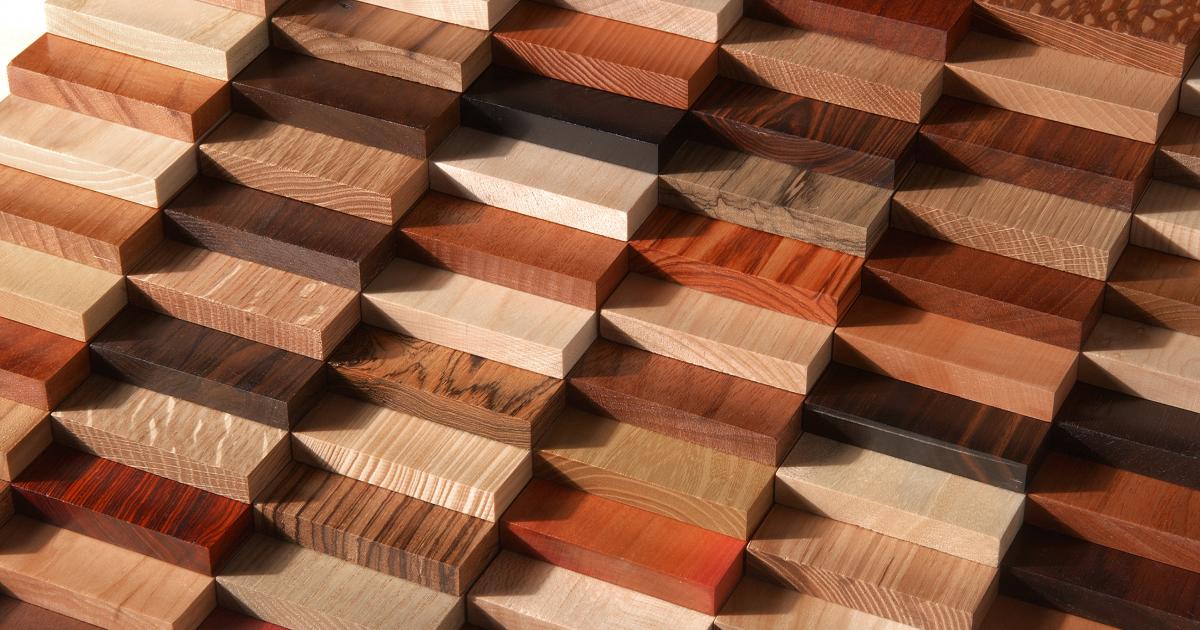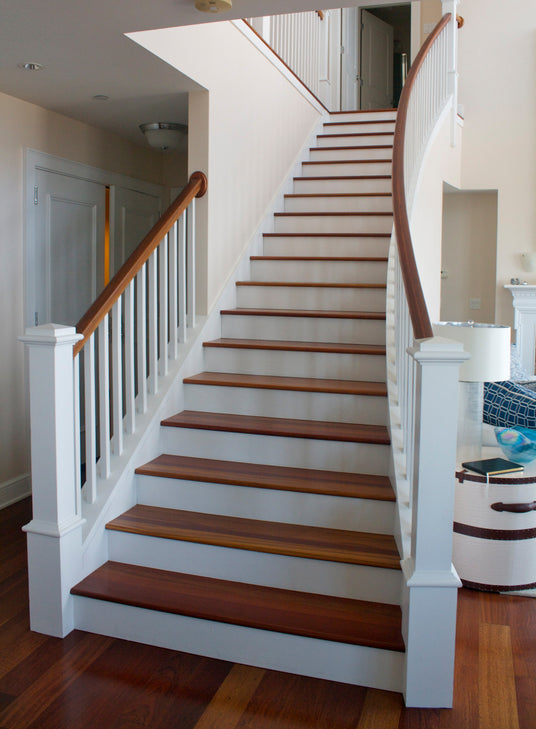
American Cherry
Characteristics:
- Color: Rich reddish-brown with a golden hue.
- Grain Pattern: Fine, straight grain with occasional figuring.
- Hardness: Moderate.
Uses:
- Ideal for crafting high-quality rich flooring and stair treads.
- Well-suited for fine woodworking, such as carving and turning.
Advantages:
- Boasts a warm, elegant appearance that enhances any space.
- Ages gracefully, deepening in color and character over time.
- Known for its excellent workability, making it a preferred choice for fine woodworking.
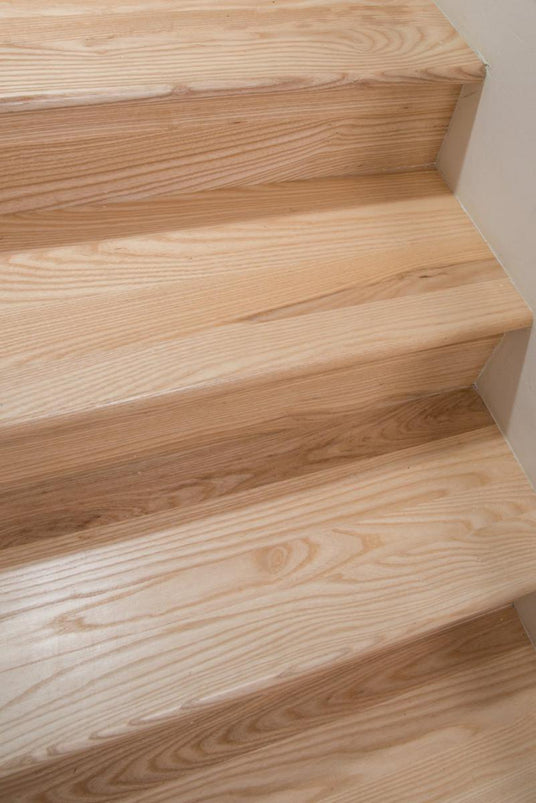
Ash
Characteristics:
- Color: Light, pale yellow with a straight grain.
- Hardness: Tough and durable.
- Grain: Ash wood is known for its distinctive grain pattern, which is characterized by a straight, pronounced, and relatively uniform texture.
Uses:
- Frequently utilized for crafting tool handles, sports equipment, and furniture.
- Popular in flooring due to its durability and shock resistance. Makes for durable stair treads.
Advantages:
- Renowned for its remarkable shock resistance, making it a favored choice for sports equipment like baseball bats.
- Takes stains and finishes exceptionally well, providing versatility in design.
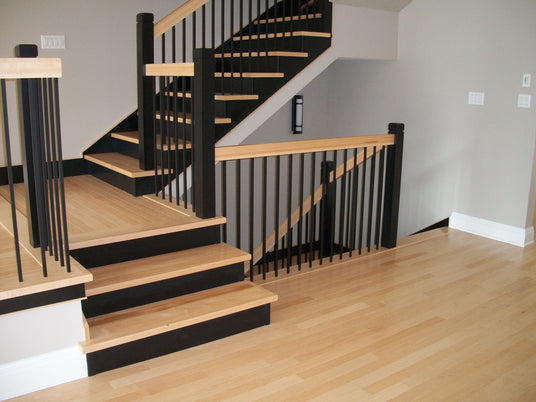
Birch
Characteristics
- Color: Light yellow with occasional reddish-brown streaks.
- Grain Pattern: Fine, even texture with a straight grain.
Uses:
- Flooring and Stair Treads.
- Valued for its affordability and availability.
Advantages:
- A cost-effective option with wide availability.
- Takes stains and finishes well, allowing for creative customization.
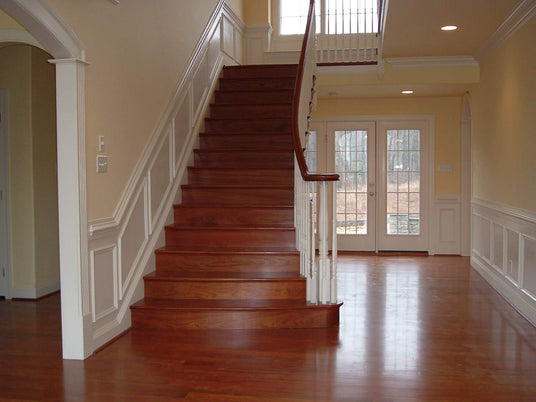
Brazilian Cherry (Jatoba)
Characteristics:
- Color: Deep reddish-brown with occasional dark streaks.
- Grain Pattern: Interlocking grain with a distinctive look.
Uses:
- Valued for its luxurious appearance in flooring, furniture, and decorative veneers.
- Suitable for high-traffic areas due to its durability.
Advantages:
- Exotic and opulent appearance, adding a touch of luxury to any setting.
- Highly durable and resistant to wear, ensuring a long lifespan.
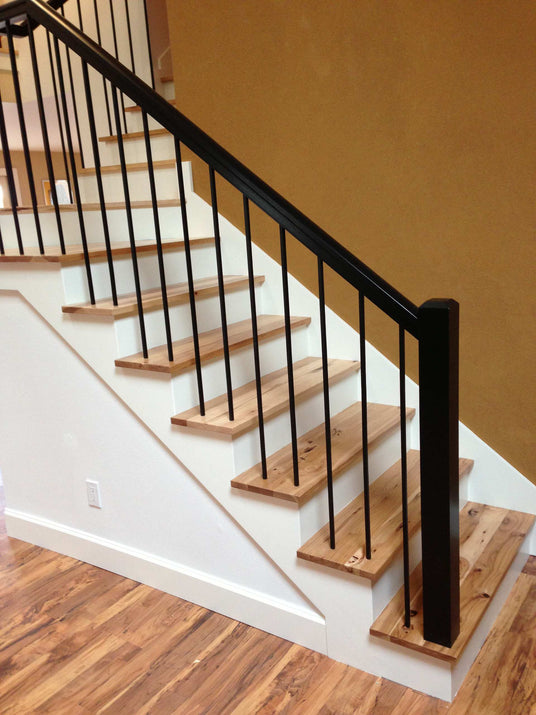
Hickory
Characteristics:
- Color: Varied, ranging from light to dark brown with pronounced grain patterns.
- Hardness: Extremely hard and tough.
Uses:
- Frequently utilized for tool handles, flooring, and cabinetry.
- Ideal for high-traffic areas due to its exceptional durability.
Advantages:
- Unparalleled durability and strength, ideal for high-traffic areas and heavy-duty applications.
- Resistant to moisture and insect damage, ensuring a long lifespan.
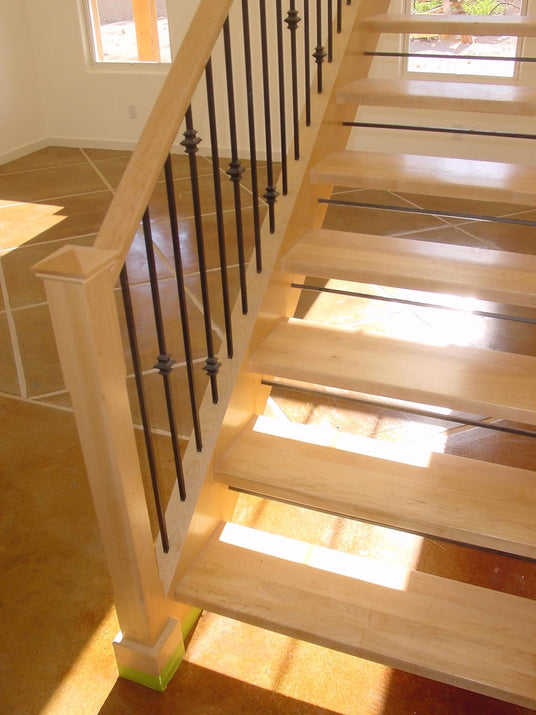
Maple
Characteristics:
- Color: Pale, creamy-white with occasional reddish-brown streaks.
- Grain Pattern: Fine, even texture with a subtle grain.
Uses:
- Preferred choice for high-end furniture, flooring, and kitchen cabinets.
- Widely used for cutting boards and other culinary tools due to its density.
Advantages:
- Boasts exceptional hardness and durability, ideal for heavy-use applications.
- Resists moisture and humidity changes well, ensuring longevity.
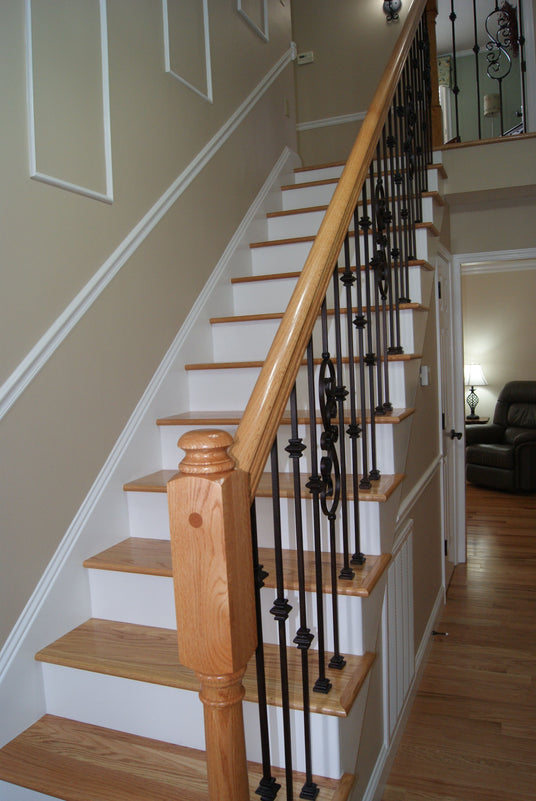
Red Oak
Characteristics:
- Color: Light to medium reddish-brown with a prominent grain pattern.
- Grain Pattern: Coarse, open grain with a distinctive look.
Uses:
- Widely employed in cabinetry, flooring, and furniture production.
- Frequently chosen for its affordability and workability.
Advantages:
- Widely available and economically priced compared to other hardwoods.
- Excellent workability and takes stains and finishes well, providing versatility in design.
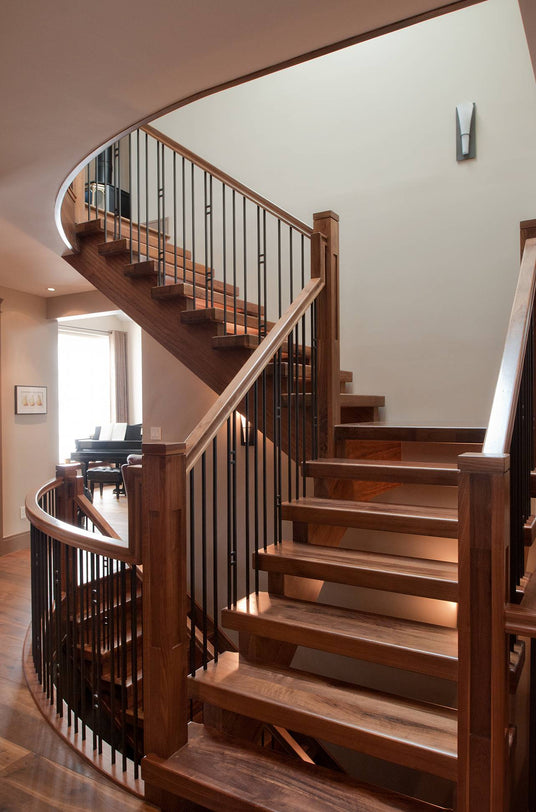
Walnut
Characteristics:
- Color: Dark chocolate brown with a straight grain.
- Grain Pattern: Fine, straight grain with occasional swirls.
Uses:
- Preferred for crafting high-end furniture, musical instruments, and gunstocks.
- Sought after for its rich, elegant appearance.
Advantages:
- Exudes a rich, elegant appearance with excellent workability.
- Highly stable and durable, making it a worthwhile investment.
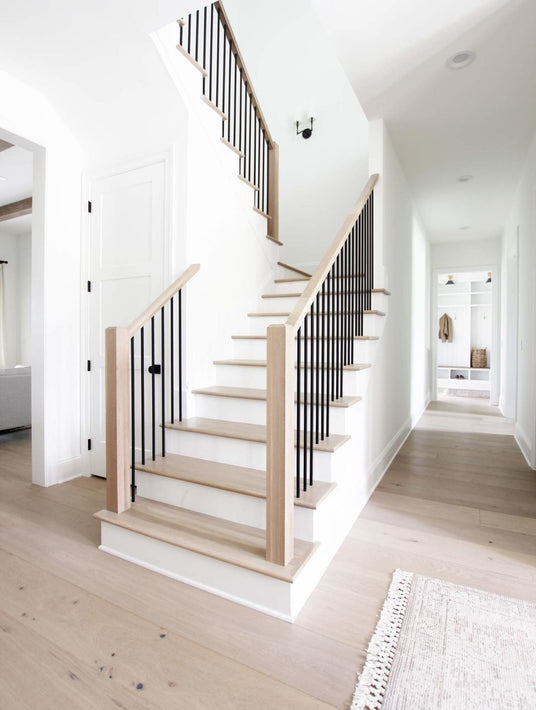
White Oak
Characteristics:
- Color: Light to medium brown with a distinctive grain pattern.
- Grain Pattern: Straight and prominent grain with a coarse texture.
Uses:
- Commonly used in flooring , millwork and high end furniture.
- Highly valued for its durability and resistance to moisture.
Advantages:
- Highly durable and resistant to moisture, perfect for most applications.
- Takes stains and finishes well, allowing for a wide range of design possibilities.

